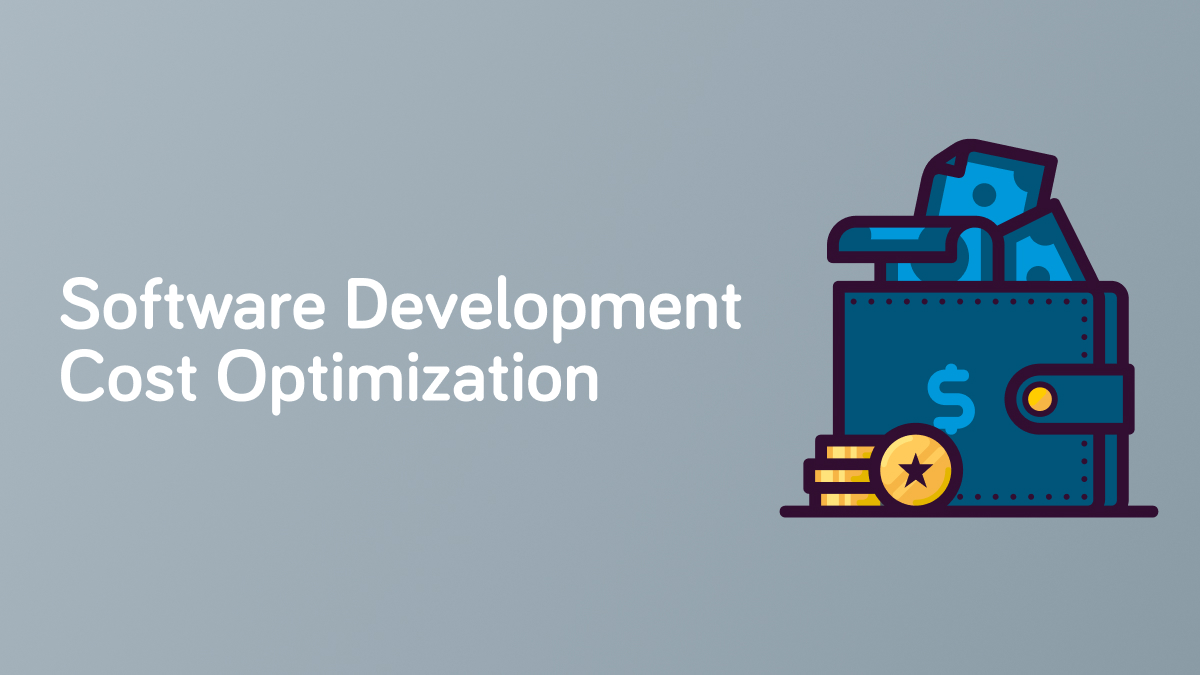Technology consulting is an abbreviation for tech consulting; this is a niche field within the wider consultancy sector that offers specialist advice and guidance to business companies and other agencies on technology-related issues towards achieving their strategic goals and addressing specific problems. Technology consultants mainly deal with customers from different industries including finance, health care, retailing, manufacturing, government among others.
Tech consulting or technology consulting covers a wide range of services including:
Strategic Planning
Technology consultant aid clients in developing technology strategies aligned with their corporate objectives. This means evaluating current technologies that they have and seeing where improvements can be made or innovations introduced as well as creating plans for bringing about new technological ideas or optimizing existing ones.
Digital Transformation
Many companies seek for tech consulting so that they can undergo digital transformation initiatives. Digital transformation involves using modern digital technologies and processes that enhance operations’ quality; reduce costs; improve customer experience; stay competitive in the digital economy.
IT Infrastructure Optimization
Technology consultant help organizations design, install and run efficient IT infrastructure solutions. These include networks, servers, storage systems, cloud computing platforms and cybersecurity measures aimed at ensuring scalability of IT environments as well as stability while enjoying protection against cyber threats.
Enterprise Software Implementation
Sophisticated software systems are what companies depend on for their day-to-day operations. Technology consultant help firms in choosing out of the box packaged products such as CRM (customer relationship management), ERP (enterprise resource planning) or SCM (supply chain management) to streamline operations and boost efficiency.
Data Analytics and Business Intelligence
There has been an increased importance of data driven decision-making over time thus leading technology consultant to support companies’ use of data analytics tools with business intelligence tools that enable them collect, analyze and make informed conclusions from which they can identify growth opportunities, and other areas where optimization is possible.
Cybersecurity and Compliance
Now, safeguarding sensitive information and adhering to regulatory compliance depends largely on cybersecurity. Technology consultant aid in assessing organizations’ cyber-attack risks; creating robust security strategies; and implementing safeguards designed to meet industry standards
Emerging Technologies Adoption
Technology consultant are specialists in keeping up with latest technologies such as AI (artificial intelligence), ML (machine learning), blockchain (Internet of Things), AR/VR (augmented reality/virtual reality). Moreover, they give insights into how these technologies may be used in different parts of an enterprise thus helping pilot them into present systems.
Change Management and Training
Introducing new technologies or processes often necessitates organizational change. In case of changes, employees are supported by technology consultant in order for them to adapt accordingly through provision of training programs as well as smooth transitions into newly introduced systems and workflows.
Vendor Selection and Management
Technology consultant offer assistance to organizations during the vendor selection process through helping them find the right technology vendors who can align their needs and financial capabilities.
Continuous Improvement and Innovation
For improvement purposes, consultancies work closely together with their customers to monitor their performance thereby identifying areas where optimization is still required as well as new possibilities that may arise when business growth is driven by technological leverage.
How Technology Consulting Process Works?
In general, tech consulting is essential for organizations navigating the complexities of the digital landscape; capitalizing on technological advancements; realizing strategic goals within highly competitive dynamic business environments.
Tech consultancy is a many-sided process that combines different methodologies, procedures and techniques for providing customized solutions to clients’ technological challenges and business goals. This is how tech consultancy is typically conducted:
1. Initial Assessment and Discovery
– The process begins with an initial consultation between the client and the tech consulting firm where consultants try to understand the customer’s goals, problems faced by the company, existing IT infrastructure, and desired results.
– Consultants may interview key players in a company or examine documentations or perform an assessment of current technology landscape to identify pain points and areas of improvement.
– The phase sets a basis for developing customized consulting approach addressing client’s specific needs and objectives.
2. Strategy Development
– Technology consultant based on information collected during the initial assessment collaborates with the client on developing a comprehensive technology strategy.
– The strategy provides overarching goals, recommended approaches as well as roadmap for implementation of technology solutions that are in line with customers’ business objectives.
– In order to evaluate potential technologies and decide best way forward for the customer, consultants may conduct market research, benchmarking or feasibility studies.
3. Solution Design and Planning
– After defining strategy technology consultant start solution designing and planning for implementing technology solutions.
– This step involves specification of technical requirements, choosing appropriate technologies/platforms as well as system architecture designs fulfilling customer needs.
– They will work closely together with the clients through ensuring proposed solutions fit within budgetary constraints; timelines among others are in place as designed.
4. Implementation & Deployment
– Technology consultant move forward to implement and deploy technology solutions once solution design has been finalized.
– It mostly comprises configuring software systems alongside integrating hardware components besides creating custom applications or interfaces if need be.
– To ensure quality standards plus functional requirements are met thoroughly tests are performed by consultants overseeing deployment processes coordinating either internally within IT teams or external vendors.
5. Change Management & Training
– As new technologies are introduced or existing processes are modified, technology consultant provide change management support to help employees adapt to the changes.
– This may include training sessions being carried out, instructional materials developed plus ongoing support provided for a smooth transition.
– Such collaborations with stakeholders across all levels of the organization can contribute in addressing their concerns effectively and also foster collaboration culture as well as innovation.
6. Performance Monitoring and Optimization
– Technology consultant must monitor performance and identify areas for optimization after successful implementation of technology solutions.
– It entails tracking Key Performance Indicators (KPIs), analyzing feedback from users as well as conducting periodical reviews for assessing how effective the solutions have been.
– Adjustment recommendations, enhancements or any additional initiatives that could further increase efficiency, reliability and user satisfaction might be suggested by consultants.
7. Continuous Improvement and Innovation
– Tech consultancy is an ongoing partnership aimed at driving continuous improvement and innovation within the client’s organization
– On-going strategic guidance is offered by the consultants who keep watch over emerging technologies for clients’ benefit while seeking more avenues of optimization.
– In addition, they assist customers in adapting to changing market trends through regular communication, collaboration and knowledge sharing which enable them grasp new opportunities hence surviving highly competitive environments in their respective industries.
8. Closure & Evaluation
Once the objectives of the engagement by the tech consultancy are met, consultants should work with the client to ensure a smooth transition and closure.
– There may be instances where this would require capturing best practices, documenting lessons learned, and conducting a final evaluation to measure the overall achievement of engagement.
– Feedback is sought from clients by consultants in order to identify areas of improvement and collect insights that can shape future consulting engagements or initiatives.
Tech consultancy is therefore an all-inclusive process that entails; collaboration, strategic planning, solution design, implementation, change management, performance monitoring and continuous improvement. Technology consultant use their expertise, experience in business fields plus industry knowledge to help organizations effectively leverage technology for business growth in achieving their goals sustainably.
Choosing Best Technical Consultant
Making a choice on the most appropriate technology consultant for your organization is objective focused and involves an analysis of what you want as well as finding out if it fits. Begin by clearly defining your technology needs as well as what you expect. Conduct comprehensive research so as to narrow down on professionals who have relevant industry experience coupled with proven track records of success in similar technologies like yours. Evaluate communication skills as well as collaborative ability while looking for transparency and responsiveness in consultants. Consider value proposition, cost-effectiveness, potential for long-term partnership among other aspects when appraising tenders. Ultimately hire an Infinix Designs tech consultant and E-commerce developers who understands your organizational culture and strategic objectives hence successful outcome.
Selecting the right tech consultant is critical decision because it can either make or break your technology projects’ success and thereby affect an organizations’ overall objectives about their business outcomes through such technological investments. Below is an elaborate guide on how you can efficiently select the ideal technical consultant:
1. Define Your Objectives and Requirements
– Before starting on your search for a professional tech expert indicate clearly your goals that should be defined together with priorities and specific requirements. What challenges are you facing? What do you want to achieve? What kind of expertise do you need from a tech person?
2. Conduct Research and Due Diligence
– Begin by finding out about technology consultancy companies or individual consultants having experience in your industry and for your specific needs. Look for firms that have had successful previous engagements as well as positive feedback from clients.
– Evaluate the consultant’s experience, education, certification, and specialization which may include technology strategy, solution implementation, specific industrial knowledge among others.
3. Assess Industry Experience and Specializations
– Consider the consultant’s industry experience and specializations. For instance, consider consultants who were previously hired by organizations that are similar to yours since they will understand the challenges that you face as well as opportunities peculiar to your sector.
– Assess whether the consultant has experience implementing technologies and solutions relevant to your business, such as enterprise software systems, cybersecurity measures, or digital transformation initiatives.
4. Evaluate Consulting Approach and Methodologies
– The way these consulting services are delivered is important hence check the approach/methods employed by the consultant during his/her career. To this end look out for a consistent structured system in solving problems in a given organization’s various cases like strategy development plus solution delivery.
– Check if methodologies used by the consultant match up with organizational culture, values & ways of working among other things including communication style; project management practices; collaborative processes; etc.
5. Review Past Projects and Case Studies
– Let us see previous case studies or contact customers given by consultant who can tell about their work on past projects during their interviews. Develop an understanding of how successful this professional has been plus levels of satisfaction attained from former clients. Evaluate what he/she was able to do while working with other people before making a decision about hiring someone.”
I hope this analysis will provide some insights into choosing an excellent technical advisor for your company’s critical initiatives.”
Look for proof of creativity, effective problem solving and ability to deliver within budget and time as the marks of successful applications.
6. Evaluate Communication and Collaboration Abilities
– It is a must for a successful consulting engagement to have efficient communication and collaboration. Critique the consultant’s communicative skills, timeliness, and his/her ability to connect with stakeholders across your organization.
– You may consider interviewing or meeting potential consultants for their social skills, professionalism, and how they fit into the culture of your organization.
7. Assess Value Proposition and Costing
– Assess the value proposition of the consultant in terms of the benefits they bring relative to their charges. For example, you may want to know about such factors as expertise, experience, reputation as well as possible return on investment (ROI) for your organization.
– Other criteria can be soliciting detailed proposals or quotes from different consultants and comparing them based on areas like scope of work, deliverables, timeline as well as pricing framework among others.
8. Strive for Technocratic Accountability
– Get a consultant who demonstrates transparency; is honest and accountable all through the consulting process. The consultant must provide clear expectations, deliverables, timelines and be willing to provide regular updates on progress.
– Define appropriate mechanisms that will help in solving issues or addressing concerns that may arise during the engagement period.
9. Consider Long-Term Partnership Potential
– When selecting a tech consultant look at whether you can have an ongoing relationship after this initial period. The one who assures you of sticking around beyond this project is supposed to be given priority above others because he/she may understand more than anyone about what it means to build relationships that last long. Take note too if they seem like people can know something about where things are going unsurely enough into future yet willingly keep assisting in charting right directions forward.
– Evaluate how open they are when asked if they could walk alongside, you by looking past just now- But rather than merely focusing on current needs, identify a consultant who will continue to guide the organization through future challenges and opportunities.
10. Make an Informed Decision
– After thorough evaluation and consideration, make an informed decision based on the factors discussed above.
Tech Consulting Vs It Consulting
Tech consulting is often used in place of IT consulting; however, they are different areas of expertise in consultancy. Despite sharing technology as their subject matter at large, these two fields differ greatly in scope intentions and methods applied.
Tech consulting also known as technology consulting encompasses a broader range of services beyond traditional IT functions. This means giving organizational advice on how to use technology for their business objectives as well as solving unique problems. Technology consultant work closely with clients in developing technology strategies that create room for innovation while eliminating barriers towards digitalization thereby fostering business growth. For instance, there is digital strategy development; emerging technologies adoption; cyber security; data analytics; enterprise software implementation among others.
The other hand, IT consulting is an abbreviation for information technology management and operations. Yet the latter concentrates on technology-based aspects of operational or technical nature in the field of management. Such areas include systems integration, and software development, networks, installation, internet security & helpdesk support services. Their main aim is to enable clients optimize their IT environments as well as increase efficiency by making sure that technology systems and processes can be depended upon.
IT consultants have a role in projects such as network design and implementation, cloud migration, software deployment and IT service management among others. However, it is important to distinguish between tech consultancy and IT consultancy based on their focus and scope of work. Tech consultancy has a larger perspective when compared with the narrow approach adopted by IT consultants whose main concern is how to enhance their ability to run businesses.
Methodologically, tech consultancy tends to adopt a more comprehensive view by incorporating business strategy along with technological competency and industry expertise into its operations. Business needs are assessed through partnerships between firms providing this service like technology consultant so as to create particular solutions which employ digital technologies in order that organizations obtain competitive advantage and value from IS/IT investments. For example, companies can conduct market research; analyze industry trends; identify emerging technologies that can drive innovation toward growth.
However, IT consulting is more specialized than technology consulting because it focuses on specific areas of information system managing. Technical know-how in network infrastructure including cyber security must be mastered before any solution could be developed regarding client’s problems involving cyber-attacks or setting up best security measures for his company’s networks. Additionally, they should follow recognized methodologies such as DevOps for Information Technology solutions.
Conclusion
Tech consulting and tech consulting serve crucial roles in helping organizations navigate the complexities of the digital landscape. Companies can apply the expertise of consultants to improve their technology initiatives in line with the overall business strategies for better results and hence achieve a competitive position in today’s digital world.





